Are you an aspiring author looking for the perfect opportunity to showcase your work? Crafting the right letter for a contract offer can make all the difference in securing that dream deal. In this article, we'll guide you through the essential elements to include, ensuring your proposal stands out to publishers. So, dive in with us and discover how to nail that author contract offer!

Identification of Parties
The Identification of Parties section in an author contract offer typically includes essential details about the individuals or entities involved in the agreement. For example, the first party may be described as [Author Name], a professional writer recognized for their works in fiction, residing at [Author's Address], and the second party could be [Publisher Name], an established publishing company located in [Publisher's Address]. Each party's legal status may be specified, such as whether the publishing house is a corporation or an independent imprint. This section ensures clarity regarding the rights and responsibilities of both parties, providing a solid foundation for the contractual relationship.
Rights Granted
The rights granted in the author contract offer are critical, encompassing various forms of media and distribution options. Authors typically relinquish exclusive rights to publish their work, allowing publishers to distribute both physical copies (paperbacks and hardcovers) and digital formats (eBooks and PDFs) through platforms like Amazon Kindle and Goodreads. Additional rights may include translation into other languages, adaptation into various formats such as audiobooks or film, and permissions for merchandising. The contract usually delineates geographical rights, specifying regions like North America, Europe, or Asia where the publisher can market the work. Detailed clauses regarding derivative works, first serial rights, and reversion of rights upon contract termination contribute to comprehensive copyright management. Each of these elements plays a pivotal role in determining the potential reach and revenue streams for the author's intellectual property.
Compensation and Royalties
Authors are often presented with a contractual agreement detailing the compensation and royalties associated with their literary works. The compensation structure may include an advance payment, typically a negotiated sum intended to support the author during the writing process, with common figures ranging from $1,500 to $50,000 based on the publisher's size and the book's potential. Royalties, defined as a percentage of the book's sales revenue, are often calculated on a sliding scale: for hardcover sales, 10% to 15% is standard, while paperback sales may yield 5% to 10%. In the digital realm, eBook royalties generally range from 25% to 50%. Contractual clauses may also specify adjustments for foreign rights sales, audiobook formats, and merchandising opportunities tied to the intellectual property created by the author. Familiarity with the specifics of these terms--a crucial aspect for authors ensuring equitable remuneration for their creative contributions--is essential in navigating the publishing landscape effectively.
Manuscript Delivery and Acceptance
An author contract offer outlines terms for manuscript delivery and acceptance for publishing. The manuscript, referred to as the written work, must adhere to specified guidelines regarding formatting and length, typically ranging from 5,000 to 100,000 words depending on the genre. The delivery date may be stipulated, often set within six months from contract signing. Acceptance criteria include originality, copyright compliance, and alignment with the publisher's thematic focus, which can vary widely across genres such as fiction, non-fiction, or academic texts. The process may involve peer review or editorial feedback, determining if the manuscript meets quality standards before formal publication. Additionally, intellectual property rights are addressed, ensuring the author retains certain rights while granting the publisher distribution rights during a defined period.
Publication and Marketing Rights
Publication and marketing rights play a critical role in the author contract process for literary works. Typically, these rights determine how the author's manuscript will be distributed, promoted, and sold by the publishing house. Exclusive publication rights (perpetual rights in certain regions) grant the publisher authority to print and distribute the book, while marketing rights specify the scope of promotional activities backed by the publisher, including digital marketing strategies, social media campaigns, and public relations efforts. Additionally, understanding the implications of foreign rights is essential as it allows translations and adaptations of the author's work for international markets. Clarity on these rights is crucial for maintaining the author's creative control and ensuring fair revenue-sharing arrangements. Ensuring these elements are addressed in contract negotiations helps authors understand their potential reach in the literary market.

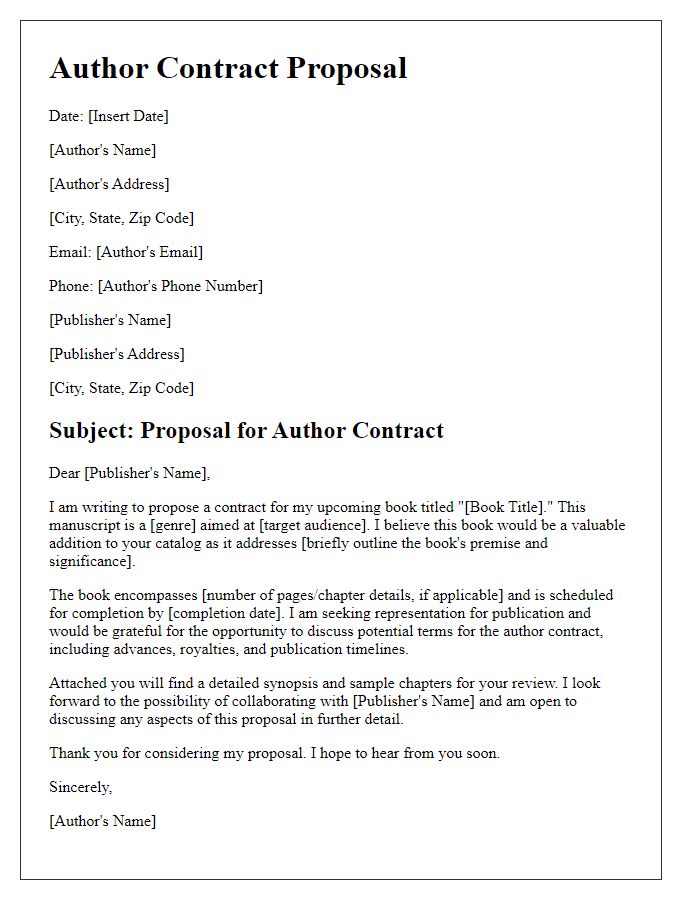
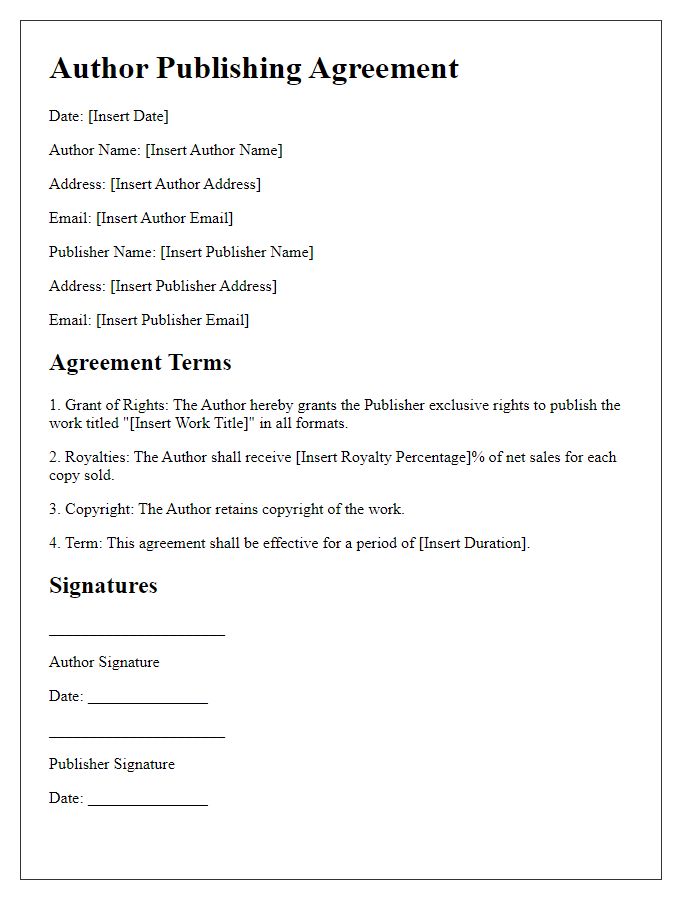
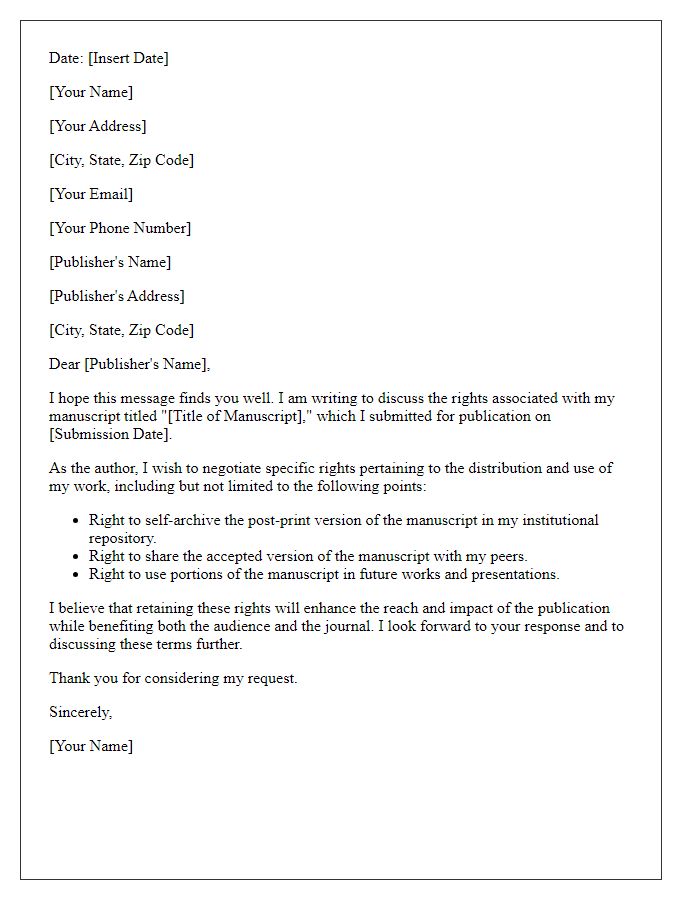
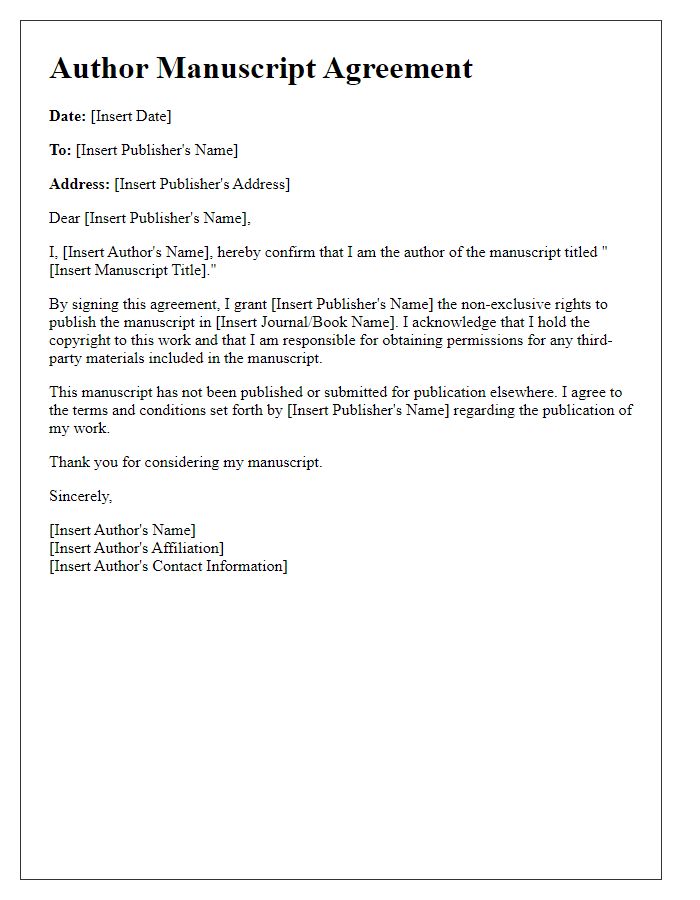
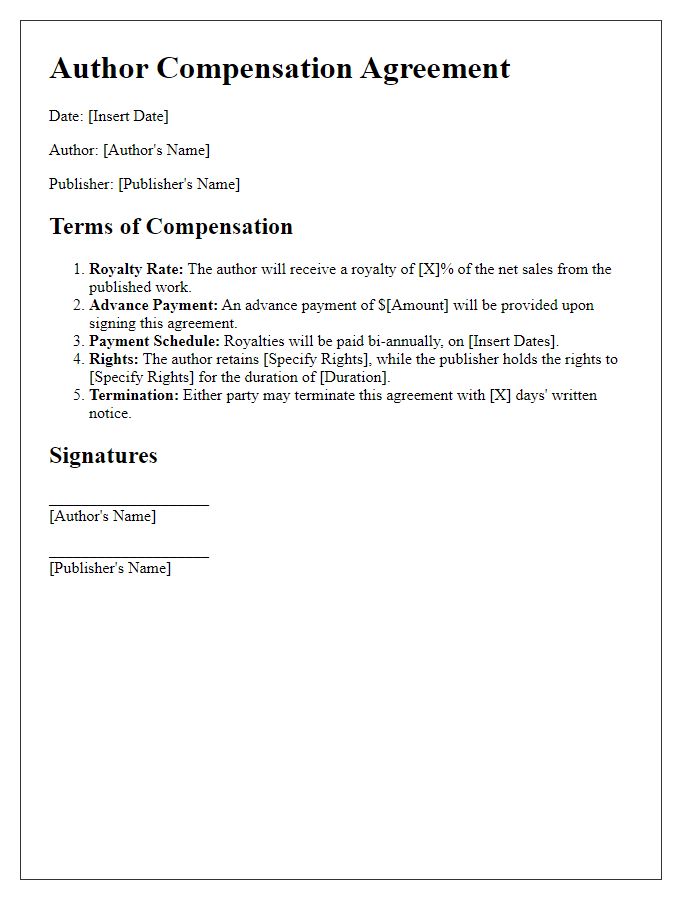
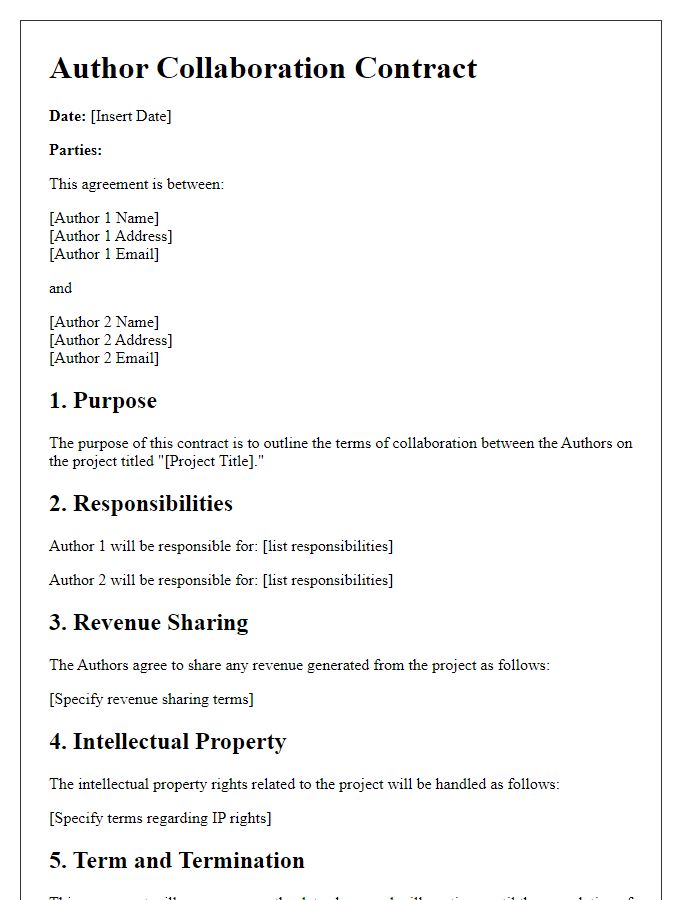
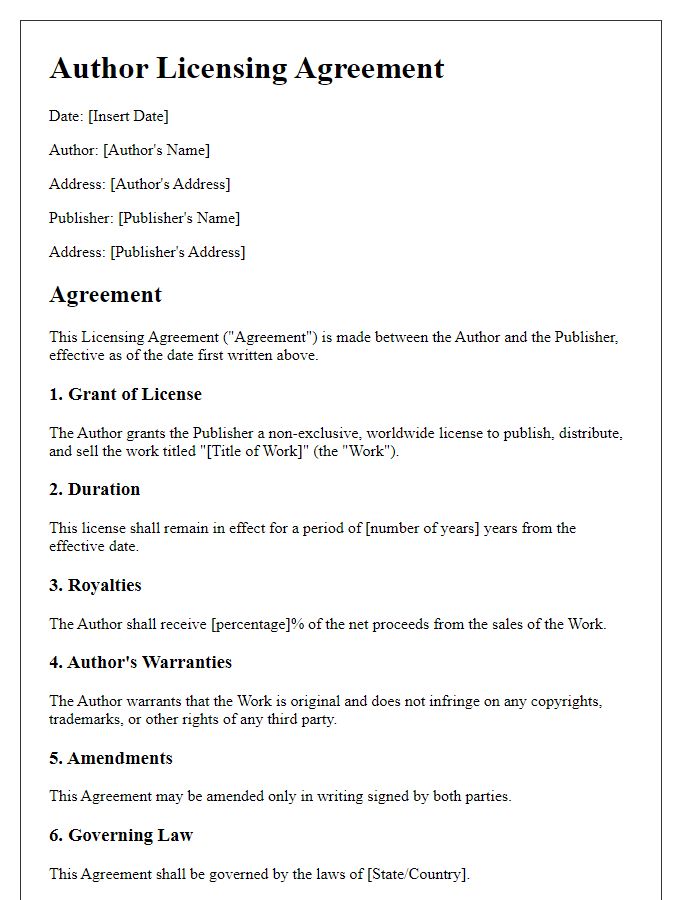
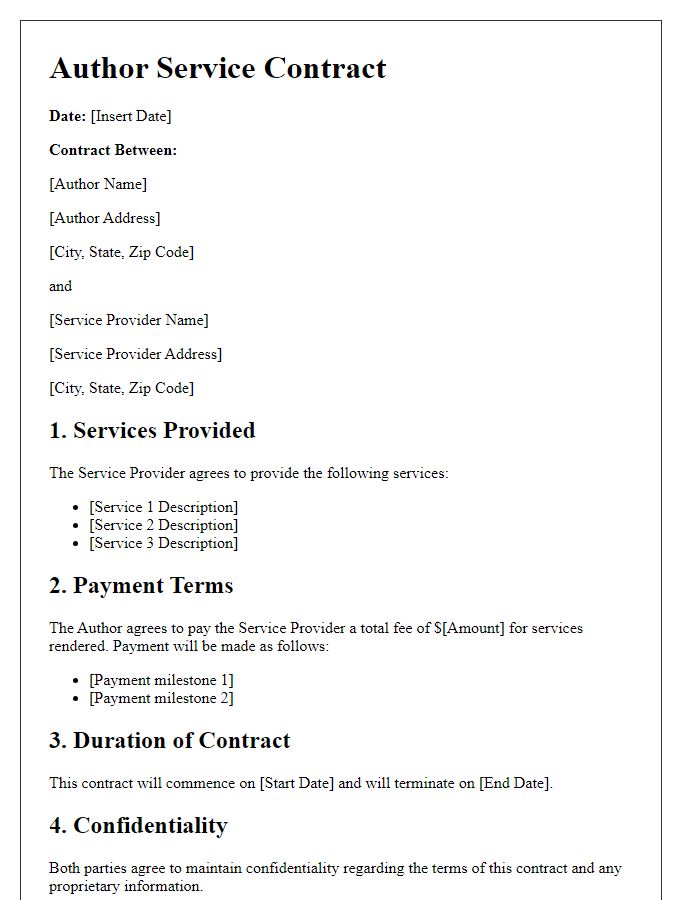
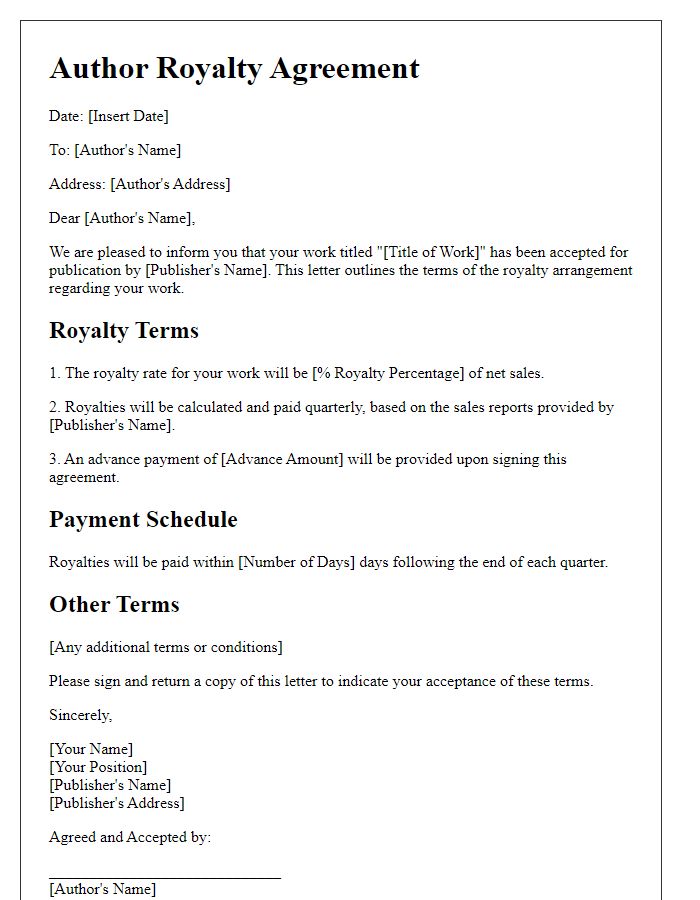
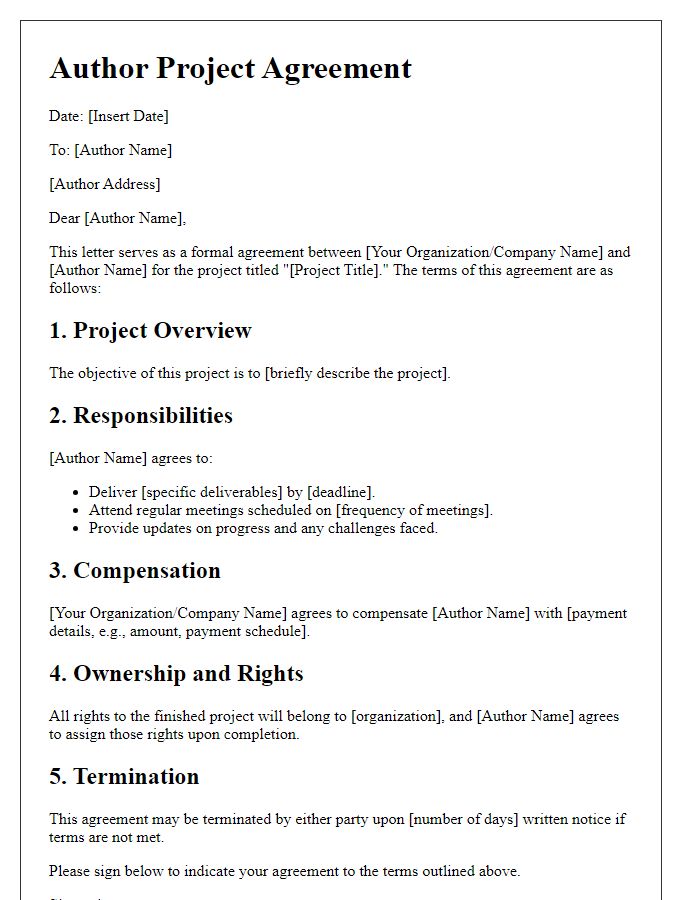

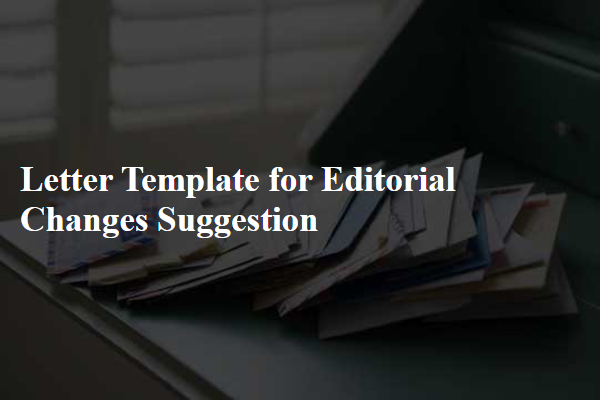
Comments